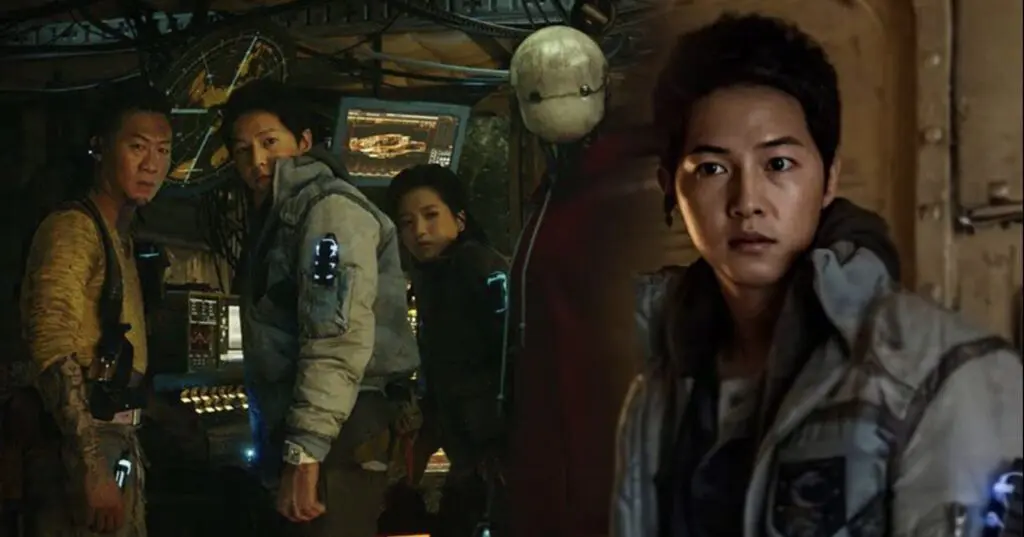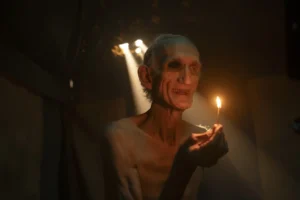Summary
Space Sweepers is a whole lot of fun, and we wouldn’t be surprised if audiences wanted more.
This review of Korean Netflix film Space Sweepers contains no spoilers. The action-adventure was released on the streaming service on Feb 5, 2021.
Netflix is landing the feature-length films this week — yesterday’s The Yin-Yang Master: Dream Of Eternity stretched over two hours long, and now we have Korean film Space Sweepers that plays on a similar runtime. I’m not complaining; I’ve always enjoyed an engaging space adventure, and this film wants to enjoy itself as much as possible for the viewer’s pleasure. Plus, this adds to the extensive Korean library — a market that Netflix has thrown money at, bringing great results.
Read Space Sweepers — the ending explained.
Space Sweepers follows a bandit of misfits in 2092 — space is full of junk, and the group competes against other pirates to collect rubbish and find anything valuable. It’s a window into a possible future where humans economize recycling for money in a predictably polluted new area. It’s a future where we do not learn our lessons. The story splits up citizens and non-citizens; governance remains, and there’s a growing sense of a divided society, with the poor having to undermine systems to make a living. For all its fun, Space Sweepers is thematic and a reflection of society, but in modern times.
The story changes when the group of junk-collectors (Robot, Tiger Park, Tae-ho, and Captain Jang) finds themselves in the presence of an android named Dorothy. On the news channels, fear is spread that this android is a tool for terrorism, and can cause havoc by exploding at any second. The android appears to be a young girl, so endearing to adults, giving a strange reminder to Monsters Inc when the monsters had no idea how to handle an innocent child. As the story fleshes out, and we learn about idealist philanthropist James Sullivan and the terrorist group Black Foxes, it becomes a layered plot that brings together the junk-collectors on an entirely different cause. It becomes a story that’s less about money and more about what they stand for.
I tend to enjoy stories that veer on idealists. This notion that to achieve a better world means carrying out an evil solution is growingly feeling realistic when we live in a world that appears to stump progress rather than embrace it. Space Sweepers toys with that idea, bringing a potential future of Mars into the fold, and intrinsically linking it with the junk-collectors and Dorothy.
But strip away the plot points (that are incredibly on-the-surface) Space Sweepers is an energetic space adventure that manages to slightly emotionally engage the audience while stimulating them with fun action sequences. The third act does suffer; with the director (Sung-hee Jo) enjoying the finale too much, bringing memories of that exhausting and lengthy end to Man of Steel — sometimes less is more, and attaching every bit of exposition to an explosion is not necessary.
But I really enjoyed this; there’s plenty to cling on to, and when characters reveal their past, the film does well to link it to their personal objectives. Space Sweepers is a whole lot of fun, and we wouldn’t be surprised if audiences wanted more.




